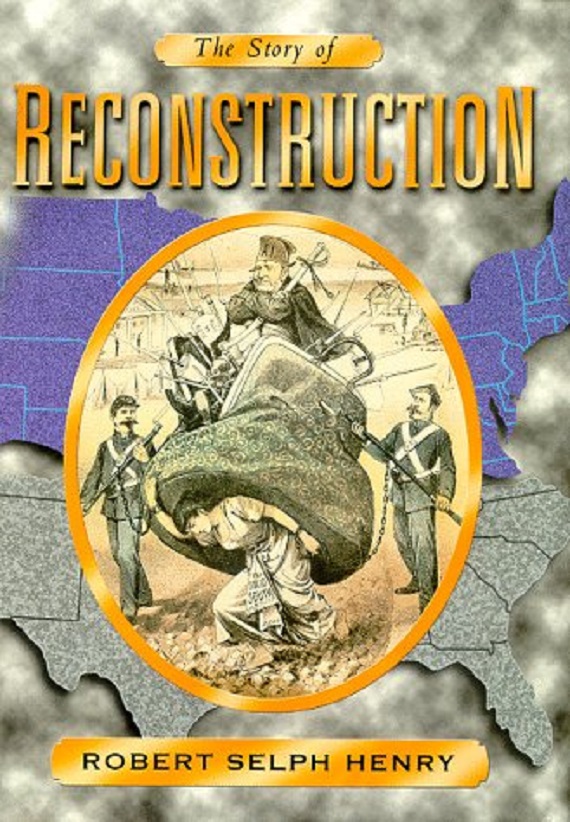Editor’s note: Mr. Leigh has published a new book titled The Confederacy at Flood Tide. A sample chapter is available here.
I once attempted to correct a Wikipedia article by citing Robert Selph Henry’s 1938 The Story of Reconstruction. The change was automatically rejected by software explaining the book was an unacceptable source. Next, I changed the article’s mistake by citing Eric Foner’s Reconstruction: The Unfinished Revolution, which was published fifty years later. Not surprisingly, it was accepted.
Born in 1889, Henry grew up in Nashville. His parents lived through Reconstruction. He graduated from Vanderbilt in 1911 where his professors knew people who had lived through the Civil War and Reconstruction. Henry added graduate work at Queens College in Cambridge. He was a lawyer until becoming a leading railroad industry executive. He wrote at least four American history books and a similar number on other topics.Three are still in print.
Booker T. Washington: Up From Slavery
John R. Lynch: The Facts of Reconstruction
A. A. Taylor: The Negro in the Reconstruction of Virginia
Carter Woodson: The Negro in our History
W.E.B. DuBois: Black Reconstruction in America
In contrast, Foner was born in 1943 in New York City and educated at Columbia where it is unlikely he knew anyone who had lived through Reconstruction. He came of age during the 1960s Civil Rights Era, which influenced his choice of The Unfinished Revolution as his book’s subtitle.
Aside from racial matters, however, Foner’s book includes almost nothing about other “unfinished”—meaning 20th century—aspects of Reconstruction. For example, he ignores lingering Southern poverty. Yet, two-thirds of Southern tenant farmers where whites as late as 1940. A report commissioned by President Franklin Roosevelt wrote that the white tenant farmers were “living under economic conditions almost identical to those of Negro sharecroppers.” When the General Motors CEO reduced his pay by $160,000 during the Great Depression, that single salary cut was more than all of the income taxes paid by all Mississippians in the same year. Even in 1960 eight of the ten poorest states were former Rebel states.
Foner’s 600-page book briefly mentions Union veterans pensions only twice, even though they represented over 40% of the federal budget in the early 1890s. He does not inform readers that payments did not stop growing until 1921, which was fifty-six years after the war had ended. Nor does he mention that by 1917 the pensions had already exceeded twice the amount of the combined Civil War spending of the federal government and all of the Northern state governments. Finally he seems to be unaware that the taxes former Rebels paid to help fund the pensions were a penalty that would basically have been reparations had the Confederacy been an independent defeated foe.
Given the site’s popularity, banning a book from Wikipedia is equivalent to burning the book. Although Wikipedia may properly challenge opinions in Henry’s book, there is no justification for reflexively rejecting the facts it reveals while automatically accepting Foner’s. A fact is a fact whether it is written in Henry’s book or Foner’s. For critics who insist that citations be only from primary sources, then neither Henry nor Foner’s books should be accepted.







